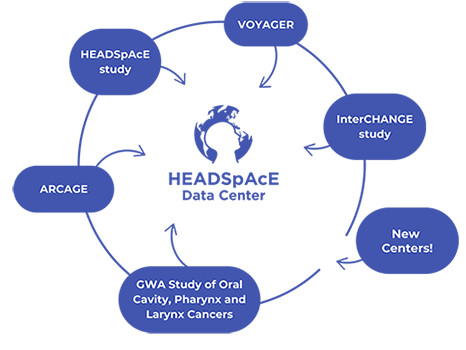The HEADSpAcE Data Centre brings together one of the largest international data and sample biorepositories dedicated to head and neck cancer research, with thousands of carefully annotated clinical, epidemiological, demographic, and lifestyle data items. Coordinated by IARC/WHO and driven by global partners, the centre promotes collaborative research internationally, according to its scientific mandate.
The HEADSpAcE scientific mandate
The HEADSpAcE Data Centre brings together HEADSpAcE member institutions with a long and successful record of collaboration in the study of head and neck cancer who have contributed and may continue to contribute head and neck cancer data to the HEADSpAcE Data Centre.
The HEADSpAcE Data Centre is committed to facilitating the use of these data by the wider research community for research within its scientific mandate, which includes:
Global Collaboration: fostering international collaboration in cancer research, bringing together expertise and resources from across the globe to tackle the complex challenges of cancer prevention and control.
From Understanding Cancer Causes to Early Detection and Survival: aiming, through rigorous research, to identify the various causes of cancer, to inform strategies and interventions for cancer prevention and early detection, and to improve cancer outcomes.
Supporting Low- and Middle-Income Countries: recognizing the disproportionate burden of cancer in low- and middle-income countries, conducting research and building partnerships in these regions; collaborating with local researchers to tailor prevention strategies that are both effective and culturally relevant.
Join the HEADSpAcE Data Centre!
